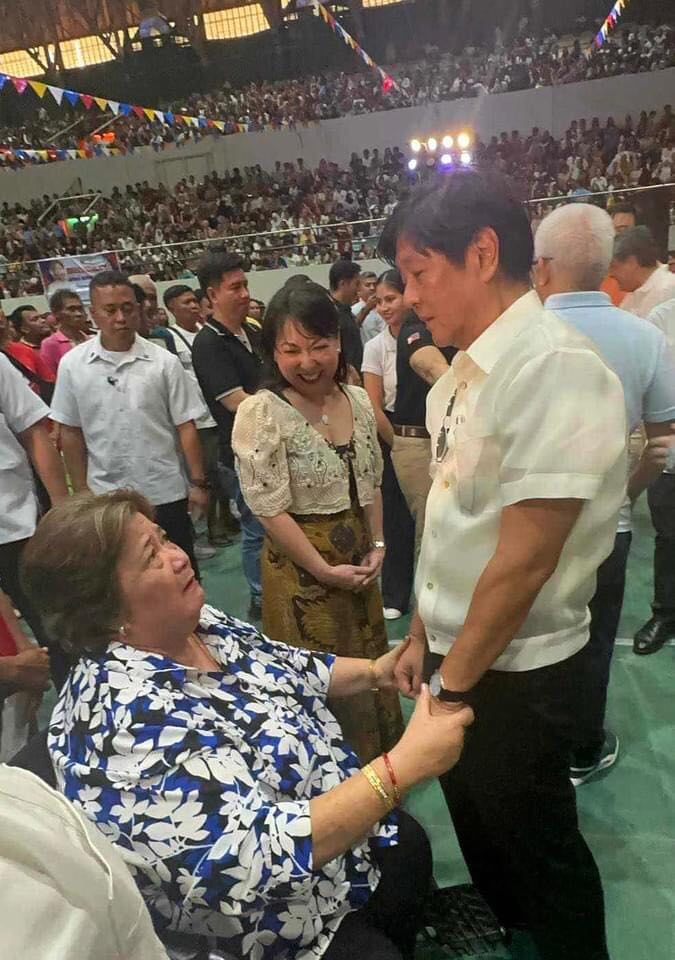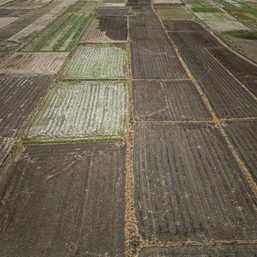SUMMARY
This is AI generated summarization, which may have errors. For context, always refer to the full article.

ZAMBOANGA DEL NORTE, Philippines – As the Zamboanga Peninsula region struggled with drought and the sweltering heat due to the El Niño phenomenon, Zamboanga del Norte’s legislature has stalled for over a month on Governor Rosalina Jalosjos’ urgent request to declare the province under a state of calamity, exacerbating the crisis for local farmers and communities in desperate need of aid.
“Until now, the [provincial] board members have yet to act on the governor’s request submitted on April 5. Time is of the essence here because we may be overtaken by La Niña,” Wilberth Magallanes, provincial administrator, told Rappler on Monday, May 13.
Norman Alegarbes, head of the Provincial Disaster Risk Reduction Management Office (PDRRMO), noted the worsening conditions: “At least 120 farmers are directly affected; there is a water shortage; millions of pesos in crops have been destroyed; and there are rising admissions due to heat strokes and acute gastroenteritis.”
In Zamboanga City on Thursday, May 9, President Ferdinand Marcos Jr. said the Zamboanga Peninsula has been one of the worst-hit regions by the El Niño. There, he gave P14.26 million in financial assistance to augment Zamboanga del Norte’s efforts to cushion the effects of El Niño.

An official declaration of a state of calamity would allow the provincial government to use a P47.4-million quick response fund, or 30% of the entire calamity fund, which is 5% of Zamboanga del Norte’s 2024 budget. The other 70% of the calamity fund can be used throughout the year without a declaration of a state of calamity.
Officials said about P15 million of the quick response fund could be used to buy goods like rice and sardines; P5 million for medicines; P10 million for fuel; P2.4 million for support to farmers and fisherfolk; and P15 million for a drilling machine for water sources.
“We are pleading with the board members. We need the declaration of a state of calamity now,” Magallanes said.
Provincial Board Member Michael Documento, chairman of the Sangguniang Panlalawigan’s committee on peace and order, told Rappler on Friday, May 10, that they have yet to calendar Jalosjos’ request as his committee passed it to the “committee of the whole.”
“We will scrutinize the provisions the capitol is asking for. Anyway, no town has yet declared a state of calamity,” Documento said.
Reacting to Documento’s pronouncement, Magallanes said, “On the contrary, the towns of Sirawai and Siocon have already declared a state of calamity last week, while Baliguian, Labason, Salug, Gutalac, and Leon Postigo are in the process of making the declaration but put it on hold upon knowing the province’s pending request at the Sangguniang Panlalawigan.”
Asked about accusations that the provincial board’s inaction was a result of “politicking,” Documento responded, “Aw, mao gyud nay ilang mahuna-huna kay dili man mi parehas ug prinsipyo (We don’t share the same principles and so, that’s what they think.)
Most of the provincial board members are politically allied with former governor Roberto Uy.
In his final month in office in 2022, Uy donated a billion pesos worth of vehicles, land parcels, and equipment to local governments led by his political allies.
The Commission on Audit (COA) flagged the provincial government, calling the donations irregular.
Much of the donations went to Dipolog City, where Uy’s son, Darel Dexter, serves as mayor, and to the towns of Gutalac and Labason, which are led by Uy’s nephews.
When Jalosjos sought authority to file administrative, criminal, and civil cases against her predecessor over the donations, the provincial government granted her permission to pursue only civil action.
Magallanes said the provincial capitol had three drilling machines which could have been used for water sources, but they were included in the donations.
“Now, those drilling machines are just left unused,” he said.
Magallanes expressed dismay over the inaction, saying “principles in the context of public service are based on our common moral and ethical values.”
He said public service suffers when political loyalties get in the way of people’s welfare.
“It should not be determined by which political side we are in. And avoiding humanitarian action, like refusing to declare a state of calamity because of political reasons, is against the truest sense of the word principle,” Magallanes added. –Rappler.com
Add a comment
How does this make you feel?













There are no comments yet. Add your comment to start the conversation.